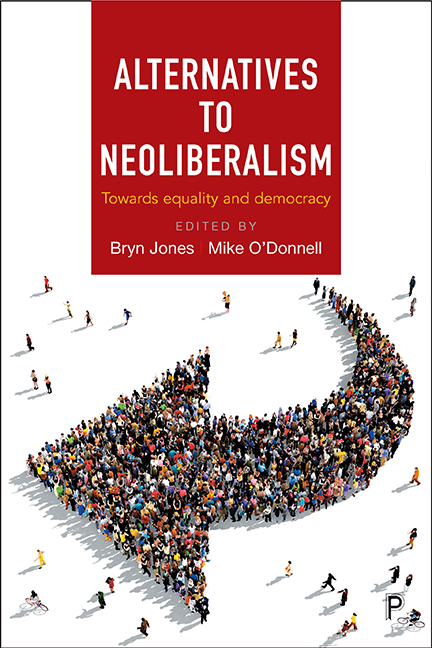Book contents
- Frontmatter
- Dedication
- Contents
- List of figures, tables and boxes
- List of abbreviations
- Notes on contributors
- Acknowledgements
- Foreword
- Editors’ preface
- Introduction: The open-market society and its opponents: an overview
- Part One Alternative paradigms and perspectives
- Part Two Reform within economic and governance restraints: pushing the boundaries
- Part Three Economic and political democracy: restoring the market-civil society balance
- Conclusion: A Brexit from neoliberalism?
- Index
Editors’ preface
Published online by Cambridge University Press: 05 April 2022
- Frontmatter
- Dedication
- Contents
- List of figures, tables and boxes
- List of abbreviations
- Notes on contributors
- Acknowledgements
- Foreword
- Editors’ preface
- Introduction: The open-market society and its opponents: an overview
- Part One Alternative paradigms and perspectives
- Part Two Reform within economic and governance restraints: pushing the boundaries
- Part Three Economic and political democracy: restoring the market-civil society balance
- Conclusion: A Brexit from neoliberalism?
- Index
Summary
As we prepare this book for publication the UK, and much of Europe, is riven by the spectre of the UK's withdrawal from the European Union. Donald Trump's impending presidency may have wider implications for the conduct of neoliberal governance. However, these two expressions of popular discontent are unlikely to change substantially neoliberalism's unequal relations of power and resources, which are detailed below. In some respects they may even intensify them. Eminent economists such as Stiglitz and Krugman have produced devastating diagnoses of the economic flaws of neoliberal capitalism which led to the 2008 financial crash.
Yet these critiques, as well as more recent depictions of wider, catastrophic social consequences, like Alain Touraine's After the Crisis (2014), have barely influenced political and business leaders. These are apparently accepting of continuing financial and economic instability, uncertainty and repressive austerity. Waves of protest and a rising tide of social movement disillusion with global capitalism continue, captured in a litany of outrage in George Monbiot's 2016 denunciation of the UK's version of the neoliberal regime (How Did We Get into This Mess?). Monbiot rightly blames the political and economic stasis and manifold social distress on the regime's unshaken commitment to the ideas and policies of ‘neoliberalism’. Moreover, as he shrewdly observes, this is an ideology which is all the more effective by being largely unnamed in public discourse, yet all-pervasive in society.
Amongst academics, campaigners and radical, fringe journalism there is no shortage of critiques and calls for resistance. Our own account of neoliberalism, given in the Introduction, summarises some of these critical aspects. However, the main thrust of this book is to provide potential alternatives, both as synoptic, coherent perspectives and also as specific policy recommendations and suggestions. These would both break with neoliberalism and provide reference points for politicians and activists to promote a more equal, more secure and genuinely freer society. Such developments would depend on collective efforts far beyond what is possible in a single volume such as this. However, we hope this collection will assist the wider movement for change to pursue, adapt and advance these or related ideas.
- Type
- Chapter
- Information
- Alternatives to NeoliberalismTowards Equality and Democracy, pp. xiv - xviiiPublisher: Bristol University PressPrint publication year: 2017

